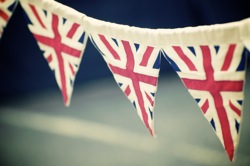A magazine where the digital world meets the real world.
On the web
- Home
- Browse by date
- Browse by topic
- Enter the maze
- Follow our blog
- Follow us on Twitter
- Resources for teachers
- Subscribe
In print
What is cs4fn?
- About us
- Contact us
- Partners
- Privacy and cookies
- Copyright and contributions
- Links to other fun sites
- Complete our questionnaire, give us feedback
Search:
Britain in Alan Turing’s time

Alan Turing changed the world, but the world shaped Alan Turing too. In the hundred years since Turing was born and the sixty years since he died, the world has changed so much that many of the things that shaped him seem quite foreign. Edmund Robinson of Queen Mary, University of London gives us some examples.
His family
Alan’s mother was educated at universities in London and Paris, which was unusual at the time. She came from a distinguished Irish family that included academics and scientists – one of her cousins invented the word ‘electron’! Her father became the chief engineer of the Madras Railway in India and was knighted. Alan’s father’s family were also distinguished: his ancestors were knights from Aberdeenshire in Scotland. Alan’s grandfather was a clergyman, and his father was in the Indian civil service. Those were both jobs that were typical for the younger son in a family to do. Even the fact that Alan’s parents both lived in India when they met is rooted in history: Alan was born when India was part of the British Empire.
His school
Most British parents in India still wanted their children to grow up in England, especially if their children could go to a good school. Alan’s parents were no exception. Alan’s school, Sherborne, was and is a good one. It’s a big school in a small Dorset village. It was really good at producing Indian civil servants, but really bad at producing scientists. At the time, science wasn’t really seen as a respectable job for the graduates of public schools. If you imagine Sherborne as Hogwarts, Turing was sort of like Neville Longbottom. He had a reputation for being a bit clumsy and unkempt. His chemistry experiments had a tendency to blow up. And you would never have thought that by the end of the story both Neville and Alan would have done some very heroic things including helping win a war each.
His love life
Alan was gay, but in those days gay sex was illegal. There were very few parts of British society where being gay was OK, and luckily when Alan went off to university he found one. Both the head of his college at Cambridge and its most famous fellow were openly gay or bisexual. Unfortunately, Alan still faced prejudice throughout his life. While he was living in Manchester in the 1950s the police found out that he was dating a man. He was convicted of indecency, lost his security clearance and was forced to take hormones to ‘cure’ him. Only in 2009 did the British government recognise the injustice of what Alan went through, and apologise.
His death
Alan died in 1954 as a result of eating a poisoned apple that he had laced with cyanide. Suicide was illegal at the time and considered to be an offence against God and the Queen. His mother was sure that he had just been sloppy with his chemicals. He may have chosen an ambiguous way to kill himself in part to spare her the social shame of the time. His choice may also have been due to a fairy tale. His favourite film was supposedly the Disney cartoon Snow White and the Seven Dwarves and he especially liked the scene where the evil Queen dips the apple into a potion she has brewed to kill Snow White. Unfortunately there was no handsome prince to wake Alan though. His work changed all our lives. If only he had lived he undoubtedly would have gone on to change the world in other ways too.


